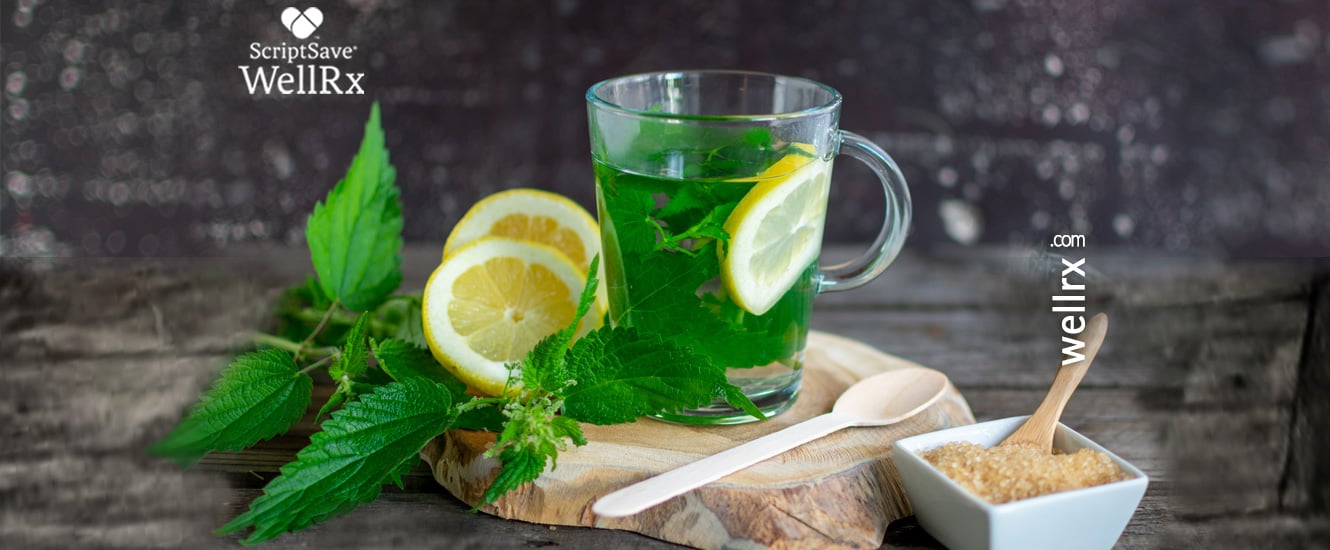With summer just starting, you need to prepare for the extra sun you will get and the dust and pollen that may cause allergic symptoms. For most, seasonal allergies can be managed by over-the-counter antihistamines. But if you do not want to depend on over-the-counter medication, natural alternatives like bromelain and stinging nettle may provide help. Keep reading to find out how to beat seasonal allergies the natural way.
What Are Seasonal Allergies
Seasonal allergies, otherwise known as hay fever or allergic rhinitis, are a common allergy disorder in various regions that affects anywhere from 10–30% of the world population. Seasonal allergies are due to the immune system overreacting to substances like pollen, mold, and pet dander. Normally, your immune system is programmed to combat harmful foreign substances that enter the body. But sometimes, harmless substances can lead to an overreaction of the immune system, leading to an allergic reaction.
Allergic reactions can be due to foods like peanuts or oils in plants like poison ivy. But with seasonal allergies or allergic rhinitis, the pollen and spores affect the mucosa of the nose leading to symptoms like:
- Sneezing
- Stuffy or runny nose
- Post-nasal drip
- Red, itchy, and watery eyes
- Itchy throat and mouth
- Dry cough
- Headaches
- Sinus pressure and pain
- Partial loss of smell and taste
Some of the triggers that can lead to allergic rhinitis in the spring and summer months include:
- Ragweed in the fall
- Grass and tree pollen in the spring
- Mold from dead leaves on trees and the ground during the summer months and early Fall months
- Yearly pet dander
- Dust in the home
- Cockroaches
- Smoke and smog
Preventing Symptoms
Since many symptoms accompany seasonal allergies, the best approach to prevent symptoms from starting is to avoid the allergens that trigger the symptoms. The following list is some things you can do to help minimize exposure to allergens:
- When it comes to pollen, avoid midmornings and early evening as this is when the wind blows pollen around.
- Keep windows closed and use your air conditioner in the car or home. It will be pivotal to check your air filter, both at home and in your car, and change it every six months.
- Wash your bedding frequently with hot water to avoid the buildup of dust mites.
- Clean your bathroom and kitchen frequently. Moist environments like the bathroom and kitchen promote the growth of mold, which will then trigger your allergy symptoms.
- Use a vacuum and avoid sweeping or dry dusting the home, as this will cause small particles to float in the air and trigger symptoms.
- Wash your hands immediately after petting any animals that may trigger your symptoms. If you are extremely sensitive to pet hair and dandruff, consider changing your clothes if visiting a friend with pets.
- Finally, avoid touching your eyes or rubbing your face, especially if outdoors.
Treatment
Sometimes, you cannot avoid or prevent symptoms, and you will need help from the over-the-counter medication for your symptoms. Oral antihistamines are one of the main treatments since histamine is the molecule released from mast cells in the body leading to muscle constriction and mucus secretion, leading to the symptoms of allergic rhinitis. The first generation of antihistamines involves diphenhydramine (Benadryl®), but this has side effects of drowsiness, fatigue, and altered mental status.
Other more commonly used medications are second-generation antihistamines, which have fewer side effects and cause less sedation. These include loratadine (Claritin®), cetirizine (Zyrtec®), fexofenadine (Allegra®), and levocetirizine (Xyzal®). These medications effectively treat sneezing, itchiness, runny nose, and red runny eyes. But to help with nasal congestion, intranasal corticosteroids will be the best treatment.
Intranasal corticosteroids are the main treatment for seasonal allergies. They decrease the number of immune cells that cause inflammation in the nose. They start working in 30 minutes and can last anywhere from a few hours to days.
According to the American Academy of Family Physicians, in a study looking at the effectiveness of oral antihistamines and intranasal corticosteroids over four weeks, intranasal corticosteroids had better quality of life scores than oral antihistamines. Some of the intranasal corticosteroids include fluticasone (Flonase®), mometasone (Nasonex®), and budesonide (Rhinocort®). Side effects include headache, throat irritation, nasal dryness, and a bloody nose.
Natural Options
If you do not want to depend on over-the-counter medication, some natural options like stinging nettle and bromelain may help relieve seasonal allergy symptoms. Stinging nettle is a medicinal plant that has been used worldwide for alternative medicine. Bromelain, on the other hand, is an enzyme derived from pineapples. Both these natural compounds have been studied for their anti-inflammatory properties that have been used in traditional Chinese medicine for seasonal allergies and other inflammatory disorders.
In a study by Bakhshaee et al., researchers reported that stinging nettle had been shown to inhibit several key inflammatory events that cause allergic rhinitis symptoms. It can inhibit histamine activity and even the production of this molecule. It was also shown to inhibit the molecules called COX-1 and COX-2, which are enzymes involved in the inflammation cascade in allergic rhinitis.
In their study of 40 participants, the researchers found that stinging nettle use with other routine treatments for allergic rhinitis for one month led to a significant decrease in the severity of symptoms and a decreased count of eosinophil cells on nasal smears. There were no serious adverse effects with the use of stinging nettle. However, one of the biggest limitations of this study was that researchers could not use stinging nettle alone to treat allergic rhinitis due to ethical considerations. Thus, stinging nettle was co-administered with routine treatments of allergic rhinitis.
In another study by Chakraborty et al., researchers found that bromelain also elicits anti-inflammatory responses by reducing prostaglandin E2 and Cox 2. Researchers reported that it had been used as a complementary therapeutic agent for sinus and nasal swelling. Like stinging nettle, bromelain may reduce the number of eosinophils, T cells, and immune signaling molecules that lead to inflammation. It has been shown to reduce mucus production and improve drainage from the sinuses significantly.
One key point to remember about bromelain is that you cannot get extra bromelain from consuming more pineapples since it is the inedible stem that contains the significant part of bromelain, which needs to be processed to be extracted by ultrafiltration. Therefore, bromelain is only available as a dietary supplement. Finally, some side effects of bromelain include gastrointestinal discomfort and allergic reactions, especially for people allergic to carrots, celery, fennel, papaya, certain grasses, or latex.
Dosing and Labels
Since stinging nettle is a dietary supplement, the FDA regulates dietary supplements under the Dietary Supplement Health and Education Act of 1994. This requires manufacturers and distributors to prohibit marketing products that are adult or misbranded, and manufacturers are responsible for evaluating the safety and labeling of their products before making sure that they meet all requirements by the FDA. Therefore, although there is no official recommended dose for stinging nettle, the suggested dosing for stinging nettle is two 300 milligram capsules 2–3 times per day. No official dose of bromelain has been recommended since many studies have used different dosing, but the German Commission E recommended 80–320 mg of bromelain, 2–3 times per day.
Although seasonal allergies can be common, you can prevent the cascade of symptoms that happen when exposed to a trigger. If prevention doesn’t work, you have many over-the-counter treatments available. You also have a natural option, but you should practice caution when purchasing dietary supplements since it is best to ensure that the manufacturer is reliable and practices manufacturing safety and labeling practices. Avoid labels that claim they can treat, prevent, cure a specific condition, or contain pharmaceutical strength. If the claim sounds too good to be true, it probably is.
Many of the pharmacological over-the-counter medications are available as generic or brand names. Therefore, when visiting your local pharmacy, ask your local pharmacist if your prescription savings card has any coupons for seasonal allergy medications. If you are thinking of starting a dietary supplement, speak with your health care provider to see if there are any contraindications you may be taking and the dietary supplement you are considering. Above all, wash your hands and avoid touching your face to reduce any symptoms of seasonal allergies.
Gabriel Espinoza, MD, has experience caring for patients in primary care and emergency settings. Some of the topics he has focused on during his medical career include various areas in public health, pediatrics, and wellness. He has co-authored a chapter on the utility of point of care ultrasound in the diagnoses of various eye conditions. The content written by Dr. Espinoza is for informative and educational purposes only. It is not a substitute for professional medical advice, diagnosis, or treatment.
References:
- https://www.aaaai.org/About/News/For-Media/Allergy-Statistics
- https://www.mountsinai.org/health-library/condition/allergic-rhinitis
- https://acaai.org/allergies/allergic-conditions/hay-fever/
- https://www.aafp.org/pubs/afp/issues/2010/0615/p1440.html#:~:text=Pharmacologic%20options%20for%20the%20treatment,anticholinergics%2C%20and%20leukotriene%20receptor%20antagonists.
- https://www.ncbi.nlm.nih.gov/pmc/articles/PMC5963652/
- https://www.ncbi.nlm.nih.gov/pmc/articles/PMC8067380/
- https://www.fda.gov/food/dietary-supplements
- https://www.peacehealth.org/medical-topics/id/hn-2135002#hn-2135002-how-it-works
- http://se3.adam.com/content.aspx?productid=607&pid=33&gid=000289
- https://www.nsf.org/knowledge-library/dietary-supplements-claims-labels-regulations













 Store & manage your medication list
Store & manage your medication list Medication pricing updates
Medication pricing updates Pill & refill reminders
Pill & refill reminders Medication journal & mood log
Medication journal & mood log